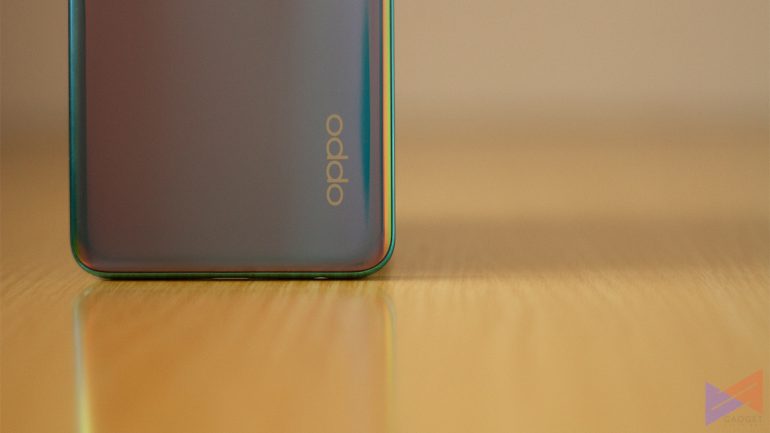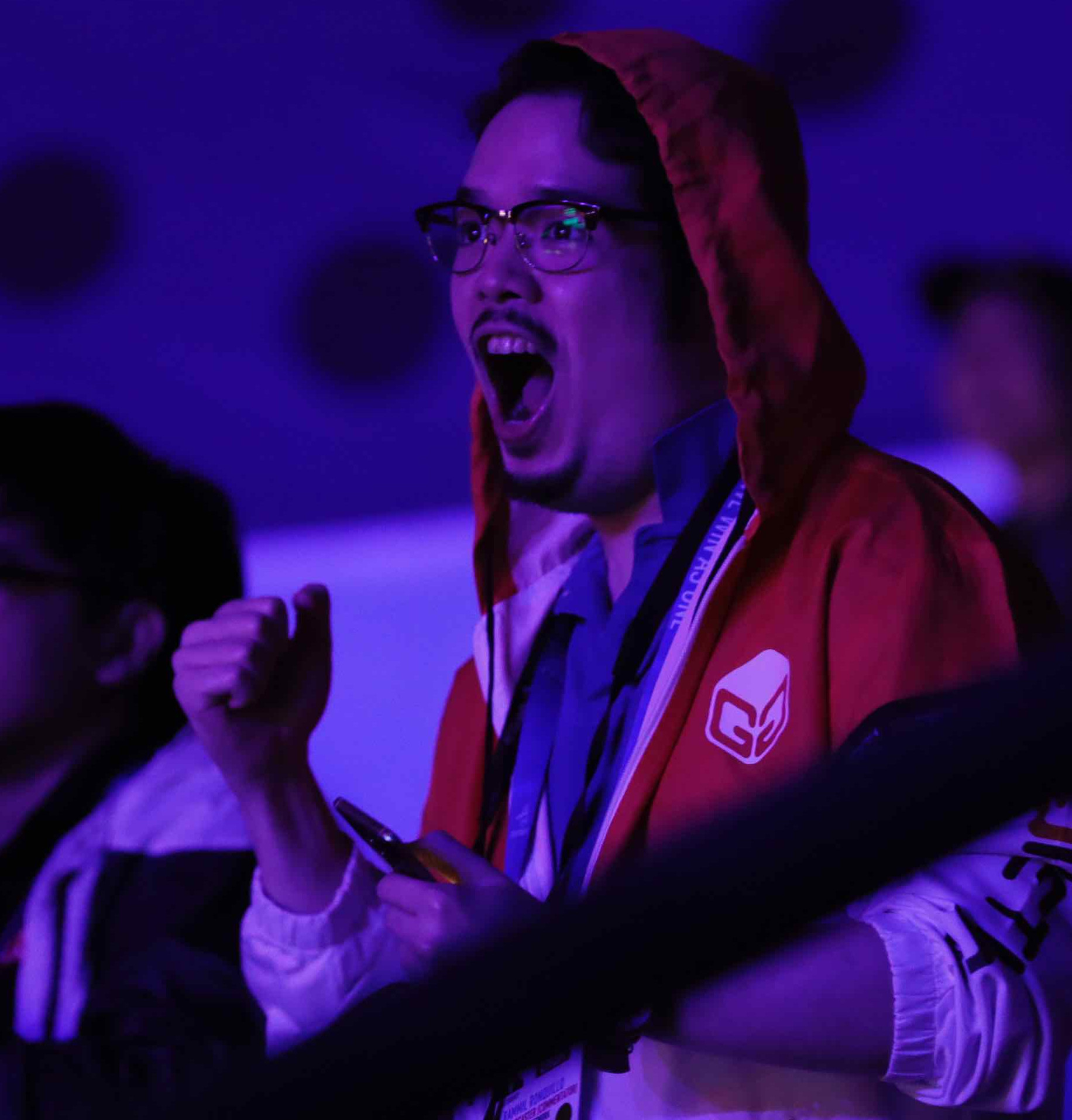OPPO recently took part in the Computer Visual Pattern Recognition Conference 2021 (CVPR 2021). At the conference, the company placed in six major challenges and took home a total of 11 awards. This demonstrated its industry-leading technological strengths and innovative breakthroughs in AI.
The teams that participated in the CVPR 2021 competition came from the Intelligent Perception and Interaction Department of the OPPO Research Institute. Its entries in the six major challenges of Multi-Agent Behavior, SoccerNet, LOVEU, AVA-Kinetics, Mmact, and People in Context ended with excellent results.
“We are very pleased to have achieved such remarkable results again in this year’s CVPR Challenges, following our inaugural participation in CVPR 2020. Last year, we won first place in the Perceptual Extreme Super-Resolution Challenge by demonstrating technology that can sharpen the appearance of blurry images and in Visual Localization for Handheld Devices Challenge that makes fusion positioning more precise. The Challenges won by OPPO this year, such as Multi-Agent Behavior, AVA-Kinetics, and 3D Face Reconstruction from Multiple 2D Images, cover more complex and advanced areas of computer vision, including behavior detection, localization of human actions in space and time, and facial detection.”
Eric Guo, Chief Scientist, Intelligent Perception of OPPO
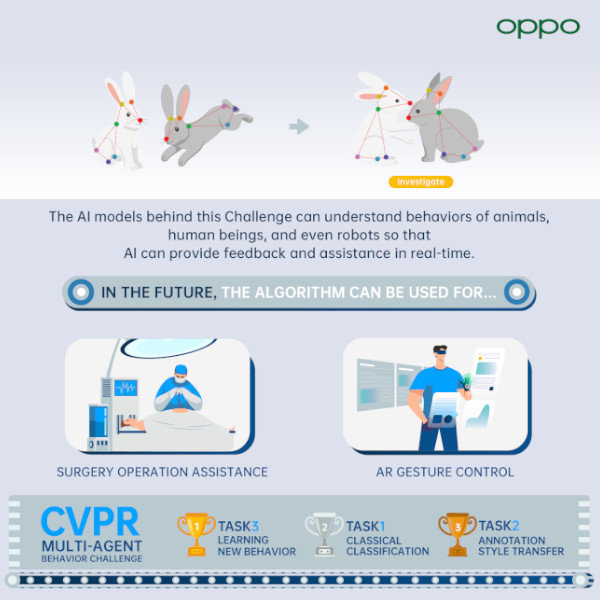
Among the total 11 honors, the company received three awards in the Multi-Agent Behavior Challenge. The challenge assesses the AI model’s ability to understand, define, and predict complex interactions between intelligent agents such as animals and human beings. The company ultimately won the first-plaze in the Learning New Behavior category, second-place in Classical Classification, and third-place in Annotiation Style Transfer.
OPPO improves AI’s ability to understand people
The company is building capabilities in human-centric AI. In the 3D Face Reconstruction from Multiple 2D challenge, OPPO’s self-developed AI algorithm was able to reconstruct 3D facial shapes with an error of around 1mm which led to take second place in the main index score ranking.
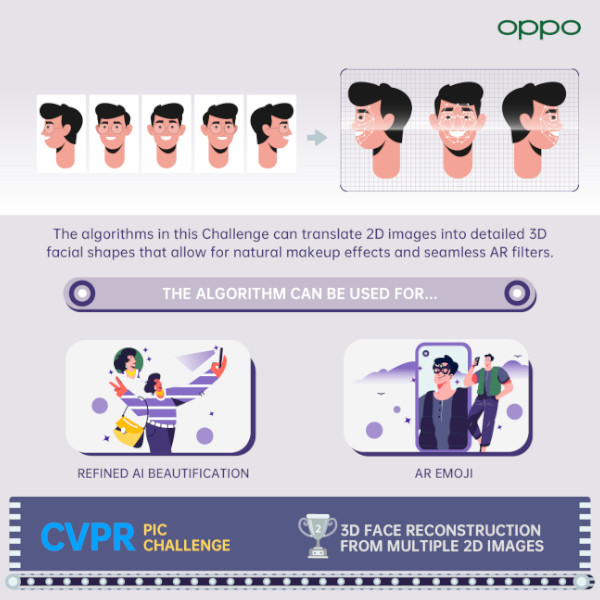
The technology from the company overcomes problems associated with unclear facial features, exaggerated expressions, as well as damaged image data causedd by real-life movements to procue more accurate 3D facial models.
The algorithm is able to identify 635 key features points at a rate of 30 times per second. It is used to power the AI Makeup video feature found in the upcoming OPPO Reno6 smartphone. The feature allows you to create dynamic and natural beauty effects in the videos. The technology will promote the evolution of portrait technology.
AI that understands space and time
In the SoccerNet Challenge, OPPO took second place in both the Action Spotting and Replay Grounding tasks. The purpose of the challenge was to evaluate the ability of the algorithms to identify more than a dozen key actions in a video of a soccer game. This includes offside and red card violations, which are usually difficult for humans to recognize due to the complexity of the rules.
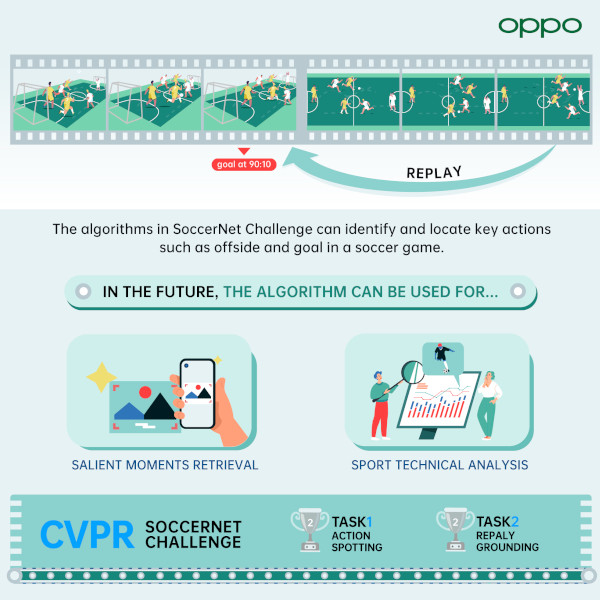
The algorithm also needs to account for other variables like different camera angles and accurately retrieve the timestamp of the action shown in a given replay shot within the original game to be effective. The applications of the technology are wide-reaching and will help improve the experience for sports lovers. Similarly, the technology can also be used to automatically create highlights of a user’s life by analyzing the videos on a user’s phone.
OPPO took home second place in both the Cross-Modal Action Recognition and Cross-Model Action Temporal Localization tasks of the MMact Challenge. The company’s AI algorithm can accurately recognize more than ten types of actions in a video using only visual data. It is expected to be widely adopted in smart homes in the future.
The company also took third place in the AVA-Kinetics Challenge which makes use of the industry’s first dataset to include space and time information. The algorithm for the challenge can not only accurately identify the various behavior of people in the video, but also note their time and position.
OPPO continues to explore the frontiers of AI technology
It also earned third-place in the LOVEU (Long-Form Video Understanding) challenge. The challenge requires AI technology to understand the content of a video and segment it into chunks without being given pre-defined categorie. This poses a significant test ofr the ability of the AI algorithms to be applied to more generalized situations. The technology has potential to be widely used as the hfoundation for further AI tasks in video processing like facial detection and behavior recognition.
For more information on the latest developments of OPPO and its latest products, click here.
Ram found his love and appreciation for writing in 2015 having started in the gaming and esports sphere for GG Network. He would then transition to focus more on the world of tech which has also began his journey into learning more about this world. That said though, he still has the mentality of "as long as it works" for his personal gadgets.

